
How to Launch, the Spotify Way
The author's views are entirely their own (excluding the unlikely event of hypnosis) and may not always reflect the views of Moz.
It's all about the first impression. Whether you're launching a startup, product or feature, the launch can make or break it. It's the shining moment when all eyes are on you.
Better make the most of it.
There are stories of how some companies got it right, but one that stands out in particular: Spotify.
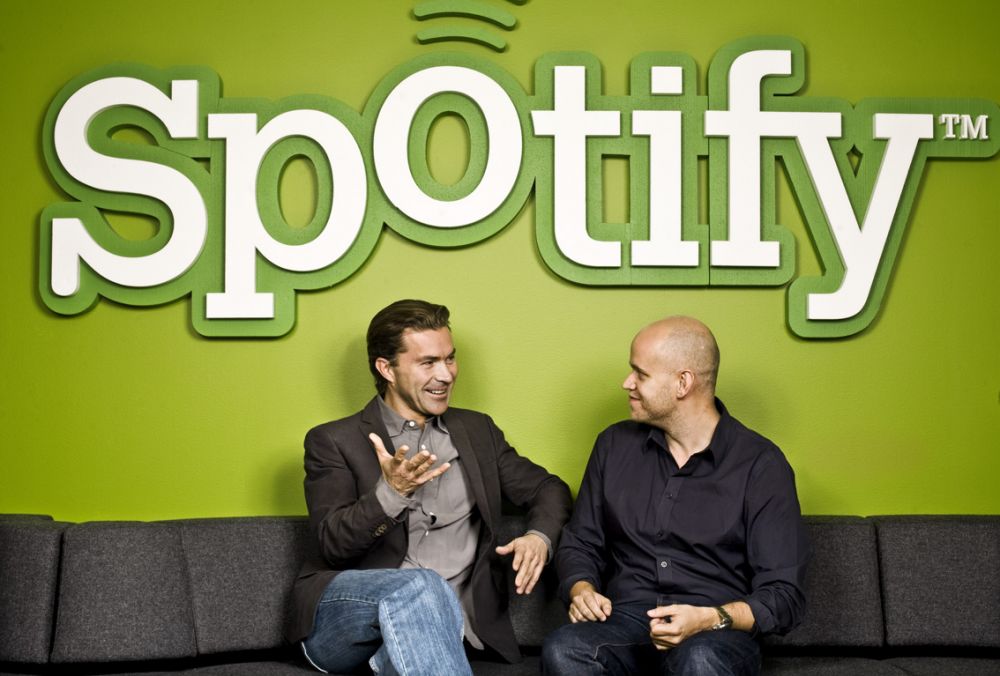
Looking at the success of Spotify, to the tune of over 2.5 million paying subscribers, there's one thing that sticks out in my mind… the launch. The fact is that many similar services existed long before. Folks like Rhapsody, Rdio and MOG had the coveted first to market advantage. They had it won. Spotify wasn't the first to market, at least in the US. Yet, everyone in the US was anxiously awaiting Spotify. Foaming from the mouth anxious.
Spotify are masters of the launch. Artists, aficionados, ninjas -- pick your favorite flavor. So, how'd they do it? How can you achieve the same launch success? Let's take a look at how they did it.
Private Beta
Exclusivity, it's the value that comes from launching in private beta. Spotify executed the private beta beautifully. The concept is simple; grant invites to a select few, those select few have a limited number of invites to grant to their friends, and so on, and so on. It's a process that inherently brings discussion, need and distribution. Just look at the buzz.
There's some subtle detail there, though. Beta invites are like a spigot, if you turn it on full throttle, the well will dry up quickly. If you open it slightly, the water comes out slower, and more controlled. Spotify only granted users a limited number of invites. It created scarcity, and allowed them to control their growth. Now that the service is scalable and distribution became widespread, they turned it on full force.
Geographic Segmentation
Faceook famously used geographic segmentation. In one of my favorites, The Social Network, Sean Parker uses the term "little big horn" to describe the strategy of planting Facebook at surrounding campuses of the one they were looking to target. Spotify launched in a similar fashion, however unintentional, just on a larger scale.
Being in the states, all we ever heard was that Spotify was coming. Again, again, and again. So we waited. Then, we waited some more. Finally, it arrived and everyone had to have their hands on it. I too couldn't wait to use it, even though I was already happily using Rdio. If they would have just opened the doors in the US without any prior buildup, that outcome would've been much different. Instead, it looked like this.
The "Right" Press and Subtle Hints
You don't need press to be successful, but it sure helps. Especially at launch. But there's a difference between press, and the "right" press. Most folks think that landing a few articles in TechCrunch is all you need to do to get that first wave of users that you can ride to the bank. Wrong.
Press is strategic, and you need to put your message in the hands of the right market. For some (including Spotify) TechCrunch, LifeHacker, and Mashable were part of the right audience. Their readership had those coveted, tech loving early adopters. That wasn't all they did, though. They got their message in front of music lovers through outlets like Rolling Stone, MTV, Spinner, etc. Press means nothing if your target user isn't reading it.
It's important to also note how they released their news. Apple infamously uses subtle hints for every single product they release. They give fanboys (like myself) just enough information to stir the pot, without spilling the beans. It causes a frenzied debate over what the latest and greatest announcement will be. Spotify did the same thing for their expansion into the US, and most recently with their announcement of a "new direction." A taste is all that's needed to make someone start salivating.
Influencers
If the subtle hints and amazing press didn't draw you in, surely the breadth of celebrities boasting about the service did. Tweets from Ashton, Britney Spears, Trent Reznor, Talib Kweli and countless others constantly filled the interwebs. All of the right people in the music space were talking about Spotify. Influencers in a niche can provide the social proof and validity that many early stage companies lack, with the click of the tweet button. Spotify took care of their influencers, and the favor was returned.
Virality and Innovation
How can you make the most out of a massive influx of beta users? You build viral features that encourage sharing and new user acquisition, of course. Luckily for Spotify, music is inherently viral. People enjoy sharing the music they listen to. So, Spotify built features into their service that made it easy to share the music you were listening to. They took it a step further to making it completely thoughtless with the new Facebook integration. But they made sure to encourage action from the other end, as well. Every song that gets shared on Facebook has a nice little play icon next to each song. When a user clicks on it, a Spotify registration action appears.
Fuel for the launch fire.
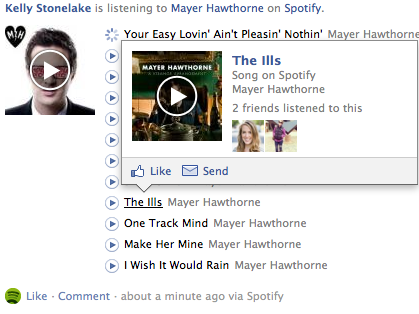
Not only did Spotify build new user acquisition into their DNA, but they made the platform sticky by continuing to innovate. The launch is only a means to an end. What you do after you get users in the door is a whole 'nother discussion.
Conclusion
Spotify won the launch game. They were strategic, precise and had all of the necessary pieces to the puzzle. They realized that a launch isn't just throwing up a blog post and callin' it good. There are deep, powerful implications that result from launching properly.
It made Spotify, will it make you?

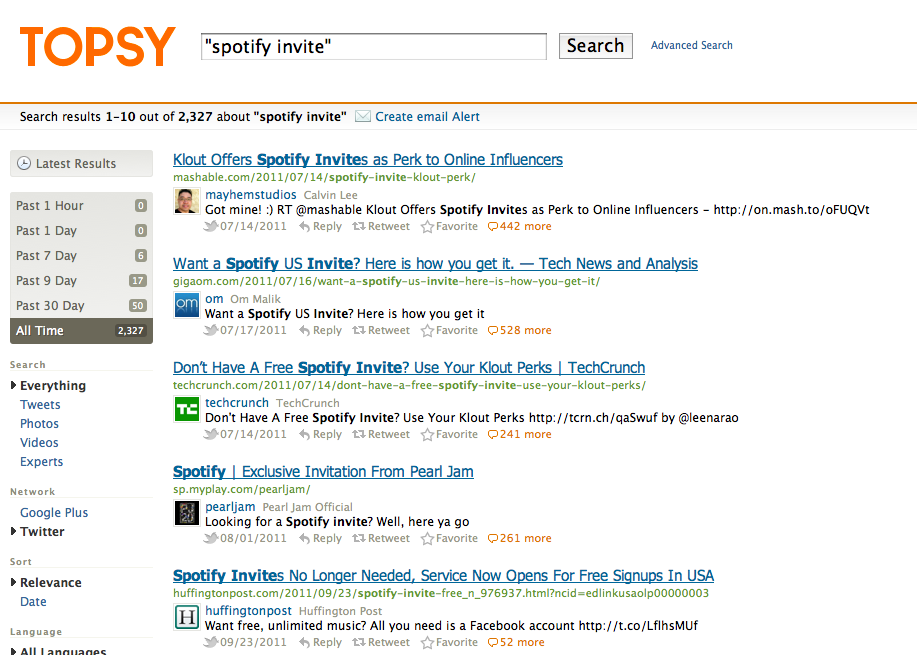
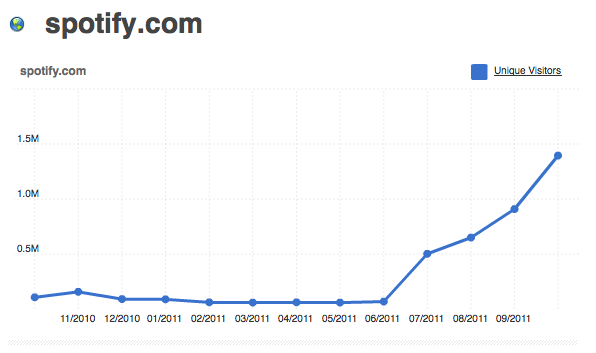
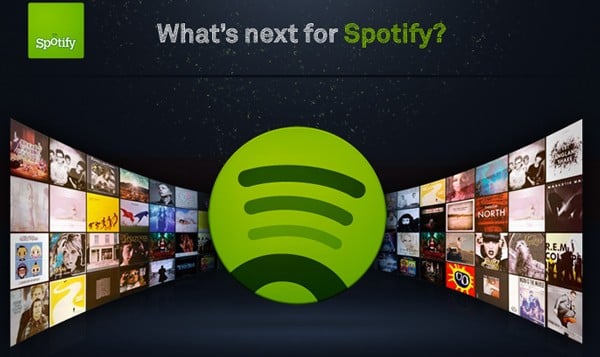
![Brand and SEO Sitting on a Tree: K-I-S-S-I-N-G [Mozcon 2025 Speaker Series]](https://moz.rankious.com/_moz/images/blog/banners/Mozcon2025_SpeakerBlogHeader_1180x400_LidiaInfante_London.png?w=580&h=196&auto=compress%2Cformat&fit=crop&dm=1749465874&s=df8aa6d34a976c4a941727c03aba118d)
![How To Launch, Grow, and Scale a Community That Supports Your Brand [MozCon 2025 Speaker Series]](https://moz.rankious.com/_moz/images/blog/banners/Mozcon2025_SpeakerBlogHeader_1180x400_Areej-abuali_London.png?w=580&h=196&auto=compress%2Cformat&fit=crop&dm=1747732165&s=d887ee9e0e183cbb2bf4d61c717c2aa3)

Comments
Please keep your comments TAGFEE by following the community etiquette
Comments are closed. Got a burning question? Head to our Q&A section to start a new conversation.